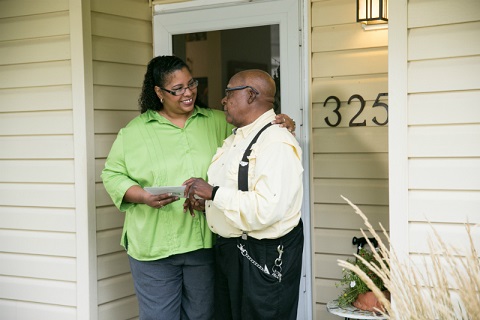Many of us take to the road or the air this time of year to visit friends and relatives. What happens when you are a caregiver traveling with a loved one?
Guest article by Dr. Lisa Price

While travel may be stressful, planning will ensure caregivers and loved ones manage successfully.
On the Road, Again
Tip #1: Talk it through.
Whether staying home and hosting visiting friends and family or going on a trip, caregivers must talk with their loved ones to ensure they have a voice in the plans. It’s much easier to have this discussion in advance rather than trying to plan after company arrives, while rushing to catch a flight, or getting on the road in a timely manner. Discuss travel preferences and what causes anxiety and what is calming. Ask about medications, personal items such as incontinence supplies, and anything else they think they’ll need.
Tip #2: Go the distance.
Some older adults have difficulty walking or walking long distances. Parking lots, security lines, and airport gate distances can become an issue very quickly. Vision loss also contributes to making navigating in unfamiliar places, scary.
Many airports offer wheelchair or electric cart services from the terminal to the gate. Arrange these in advance. Also, consider how to get around once you arrive. Can your loved one’s mobility device be transported easily by plane? In some cases, it may be easier and more practical to rent when you arrive. Either way, make sure your rental car has enough room to accommodate passengers, luggage, and any needed equipment.
Tip #3: Diminish distractions.
When families get together, multiple conversations happen at the same time and background music is part of the celebration. Both may pose a challenge for those with hearing loss to feel involved. Even with hearing aids, older adults must contend with background noise, making participating in conversations difficult to impossible. Quieter spaces may allow for more memorable moments. Loved ones with dementia also may find the stimulation of crowded airports, restaurants, or parties distressing. Finding quiet places to retreat, using noise canceling headphones or playing familiar music can be very helpful.
It’s easy to minimize distractions by turning the TV sound down or off. The same goes for loud music. You or your hosts may also want to consider turning off or limiting the number of festive blinking lights inside the home.
When you’re out and about, pay attention to ensure your loved one isn’t getting over-stimulated by sounds and lights. If it happens, look for a quiet corner to relax. Making the outing or visit as routine as possible is your goal as a caregiver.
Whether you and your loved one travel far or stay close to home, talking in advance and planning can help lower stress levels and bring more joy during gatherings.
 Lisa Price, MD is Chief Medical Officer at Denver-based InnovAge, [TCV 6/26/2023: URL updated] a provider of health and wellness services for older adults in California, Colorado and New Mexico. Dr. Price was a private-practice geriatrician for 11 years, and then attended on the Acute Care of the Elderly service and taught Quality Improvement at the University of Colorado.
Lisa Price, MD is Chief Medical Officer at Denver-based InnovAge, [TCV 6/26/2023: URL updated] a provider of health and wellness services for older adults in California, Colorado and New Mexico. Dr. Price was a private-practice geriatrician for 11 years, and then attended on the Acute Care of the Elderly service and taught Quality Improvement at the University of Colorado.








